Green Jobs: Eco-Friendly Careers in the United States
- Home /
- blog post
In an era where environmental sustainability is at the forefront of global concerns, the demand for eco-friendly careers, often referred to as "green jobs," is on the rise. The United States, with a growing commitment to environmental conservation and renewable energy, offers a diverse range of opportunities for individuals seeking meaningful careers that contribute to a greener and more sustainable future. In this blog post, we'll explore the world of green jobs, shedding light on the various paths available for those passionate about environmental stewardship.
Renewable Energy: Powering the Green Revolution
1. Solar Photovoltaic Installers: As the solar energy industry continues to expand, photovoltaic installers are in high demand. These professionals design, install, and maintain solar panels on residential, commercial, and industrial structures, contributing to the shift towards cleaner energy sources.
2. Wind Turbine Technicians: Wind energy has emerged as a prominent player in the renewable energy landscape. Wind turbine technicians specialize in the installation, maintenance, and repair of wind turbines, harnessing the power of the wind to generate electricity.
3. Energy Engineers: Energy engineers work to optimize energy efficiency in buildings and industrial processes. They design and implement strategies to reduce energy consumption, lower carbon footprints, and incorporate sustainable practices into energy infrastructure.
Environmental Conservation and Sustainability: Protecting the Planet
1. Environmental Scientists: Environmental scientists study the impact of human activities on the environment. They conduct research, collect data, and develop strategies for mitigating environmental issues such as pollution, climate change, and habitat destruction.
2. Conservation Biologists: Conservation biologists focus on protecting and preserving ecosystems and endangered species. They work to understand the interactions between living organisms and their environments, implementing conservation measures to safeguard biodiversity.
3. Sustainability Managers: Sustainability managers play a crucial role in guiding organizations towards environmentally responsible practices. They develop and implement sustainability initiatives, assess environmental impacts, and promote the adoption of green technologies within businesses.
Green Building and Architecture: Constructing a Sustainable Future
1. Green Building Architects: Architects specializing in green building design prioritize energy efficiency, sustainable materials, and environmentally friendly construction practices. They play a pivotal role in creating structures that minimize environmental impact and maximize energy efficiency.
2. LEED (Leadership in Energy and Environmental Design) Professionals: LEED professionals are certified experts in green building practices. They guide construction projects through the LEED certification process, ensuring that buildings meet stringent environmental standards for energy, water efficiency, and overall sustainability.
Waste Management and Recycling: Reducing Environmental Footprints
1. Recycling Coordinators: Recycling coordinators work with communities, businesses, and organizations to establish and manage recycling programs. They educate the public on proper recycling practices and implement strategies to reduce waste and promote recycling.
2. Waste-to-energy Plant Operators: Waste-to-energy plants convert waste materials into energy through incineration or other methods. Operators of these facilities oversee the safe and efficient conversion of waste into energy, contributing to both waste reduction and energy production.
Transportation and Sustainable Mobility: Navigating Eco-Friendly Commutes
1. Electric Vehicle (EV) Technicians: With the growing popularity of electric vehicles, EV technicians are essential for maintaining and repairing electric cars. These professionals ensure the smooth operation of electric vehicles, reducing reliance on traditional gasoline-powered transportation.
2. Sustainable Transportation Planners: Planners in sustainable transportation focus on developing eco-friendly transit solutions. They design and implement strategies to promote public transportation, biking, walking, and other sustainable modes of commuting.
Agriculture and Sustainable Food Production: Cultivating Green Careers
1. Sustainable Agriculture Specialists: Sustainable agriculture specialists focus on environmentally friendly farming practices. They work to minimize the environmental impact of agriculture, promote soil health, and implement sustainable crop management techniques.
2. Food Sustainability Analysts: Food sustainability analysts assess the environmental impact of food production and distribution. They develop strategies for reducing waste, improving supply chain sustainability, and promoting eco-friendly practices within the food industry.
Navigating Green Career Paths: Education and Skills
1. Environmental Education: Pursuing degrees in environmental science, sustainability, or related fields provides a strong foundation for green careers. Additionally, specialized certifications, such as LEED accreditation, can enhance qualifications in specific areas.
2. Technical Skills: Many green jobs require technical proficiency, such as familiarity with renewable energy technologies, environmental modeling software, or sustainable construction practices. Acquiring these skills through formal education or specialized training is crucial for success in the field.
3. Networking and Industry Engagement: Building a professional network within the environmental and sustainability sectors is invaluable. Attending industry conferences, joining relevant associations, and participating in environmental initiatives can open doors to opportunities and collaborations.
Embracing Green Careers in a Changing World
As the world faces unprecedented environmental challenges, the importance of green careers has never been more apparent. The landscape of green jobs is evolving, presenting new opportunities and challenges. Here are additional insights into navigating and embracing green careers in a changing world:
Emerging Trends in Green Jobs:
-
Circular Economy Experts: With an increased focus on minimizing waste and maximizing resource efficiency, circular economy experts play a key role in designing systems that promote recycling, reuse, and reduced consumption.
-
Climate Adaptation Specialists: As the impacts of climate change become more pronounced, specialists in climate adaptation work to develop strategies that help communities and ecosystems adapt to changing conditions, mitigating the potential negative effects.
-
Eco-Tourism and Sustainable Travel Advisors: Sustainable tourism is gaining traction, and professionals in this field work to promote responsible travel practices, minimize the environmental impact of tourism, and support local communities.
Remote and International Opportunities:
-
Virtual Environmental Consultancy: The rise of remote work has extended to environmental consultancy, allowing professionals to collaborate globally on projects related to environmental impact assessments, conservation planning, and sustainable development.
-
International Conservation Projects: Many organizations engage in global conservation efforts, providing opportunities for individuals to work on international projects aimed at protecting biodiversity, preserving ecosystems, and promoting sustainable practices.
Green Entrepreneurship:
-
Eco-Friendly Product Development: Entrepreneurs with a passion for sustainability can venture into creating and marketing eco-friendly products. This includes everything from sustainable fashion and zero-waste packaging to innovative green technologies.
-
Renewable Energy Startups: The startup scene is buzzing with innovative companies focused on renewable energy solutions. Entrepreneurs can contribute to the green revolution by founding or joining startups dedicated to advancing solar, wind, or other clean energy technologies.
Government and Policy Roles:
-
Environmental Policy Analysts: Individuals interested in shaping environmental policies can pursue careers as policy analysts. These professionals work to evaluate existing policies, propose new legislation, and advocate for sustainable practices at local, national, and international levels.
-
Green Infrastructure Planners: Cities and municipalities are increasingly investing in green infrastructure projects. Planners in this field work on projects like urban green spaces, sustainable transportation networks, and resilient infrastructure designed to withstand climate-related challenges.
Continuous Learning and Adaptation:
-
Stay Informed on Green Technologies: Given the rapid advancements in green technologies, professionals in the field should stay informed about the latest developments. This includes keeping up with innovations in renewable energy, sustainable agriculture practices, and eco-friendly materials.
-
Environmental Data Analytics: With the growing importance of data in decision-making, professionals can explore roles that involve environmental data analytics. This includes analyzing large datasets to derive insights that inform conservation strategies, climate modeling, and sustainable development.
Building a Sustainable Career Path:
-
Professional Certifications: Many green careers benefit from specialized certifications. Whether it's obtaining a certification in sustainable construction, wildlife conservation, or renewable energy technologies, these credentials can enhance one's qualifications.
-
Graduate Programs in Sustainability: For those looking to deepen their knowledge and expertise, graduate programs in sustainability and environmental science offer specialized education and research opportunities. These programs often provide a holistic understanding of environmental challenges and solutions.
Networking within the Green Community:
-
Industry Conferences and Events: Attending conferences and events focused on sustainability, conservation, and green technologies provides opportunities to network with professionals, learn about industry trends, and discover potential career paths.
-
Joining Environmental Organizations: Becoming a member of environmental organizations allows individuals to connect with like-minded professionals, engage in collaborative projects, and stay informed about job opportunities in the green sector.
Conclusion
Green jobs not only provide individuals with fulfilling and purpose-driven careers but also contribute to a sustainable and eco-friendly future. As the United States continues its commitment to environmental conservation and renewable energy, the demand for skilled professionals in green industries is expected to grow.
Job seekers passionate about making a positive impact on the planet can explore the diverse and evolving landscape of green careers. Whether working to harness renewable energy, protect ecosystems, or promote sustainable practices in various industries, individuals in green jobs play a crucial role in creating a more environmentally conscious and sustainable world for generations to come.
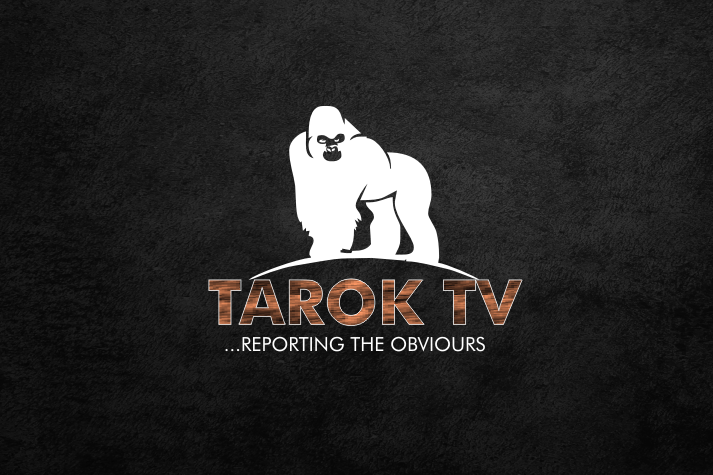
About Admin - Admin
TarokTv, ...Reporting the obvious.
Contact
Phone number: 07062319173
Email: [email protected]
Reach out to us with any news or article.
Latest Articles

Success leaves clues, and those who seek to make a difference must study the lives of those who…
read more
Langtang, a town in Plateau State, Nigeria, is not just another dot on the map but a significant origin for…
read more
Brief Biography of Gen. (Senator) Jeremiah Timbut Useni
Early Life and Education:
Jeremiah Timbut Useni, often referred to as "Jerry Boy," was born on February 16, 1943,…
read more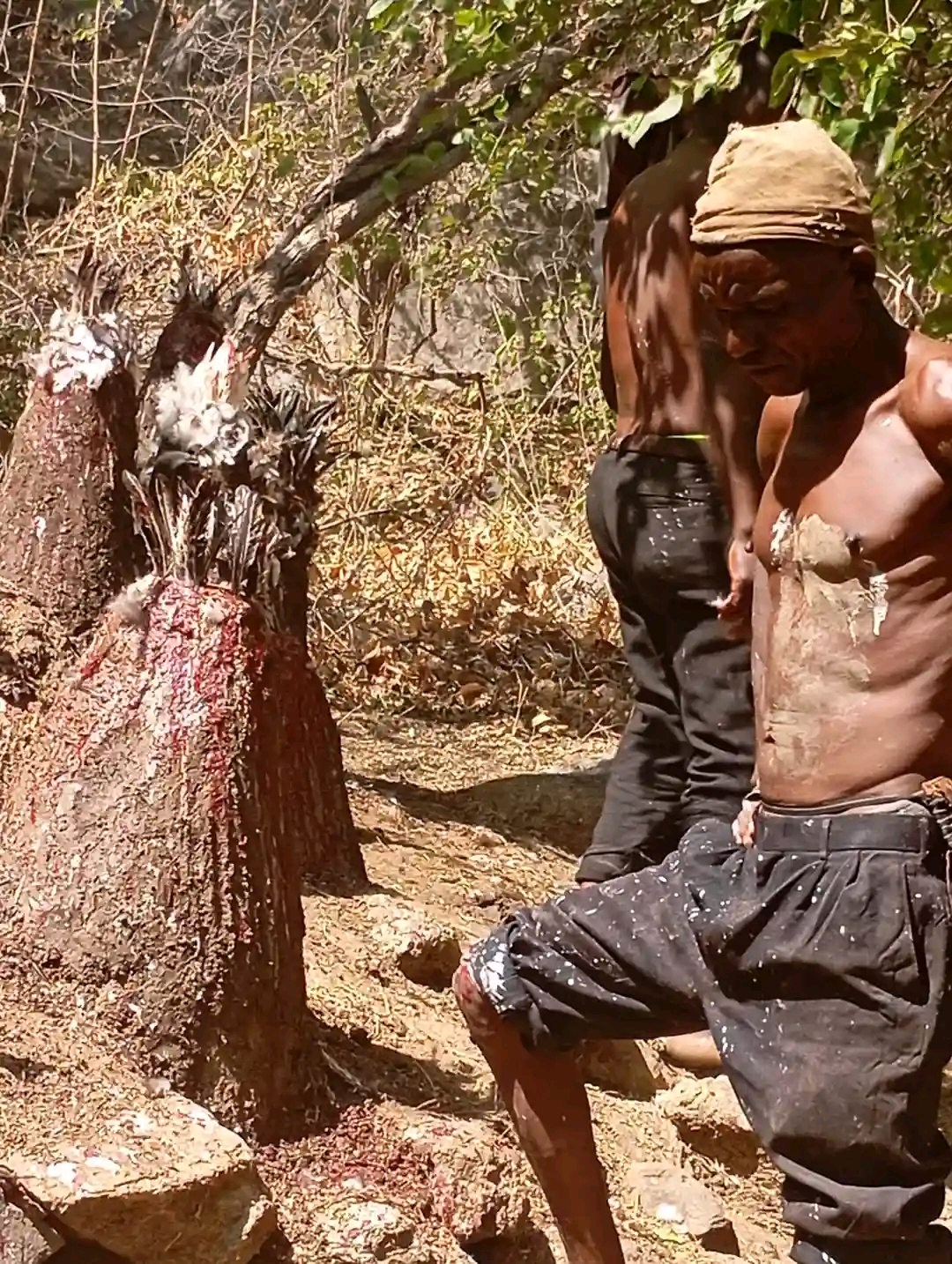
The Ibiari: A Sacred Tradition in Tarok land
The Ibiari Oga Sa festival, an annual tradition in Tarokland, was celebrated today as part of the year-end observance marking…
read more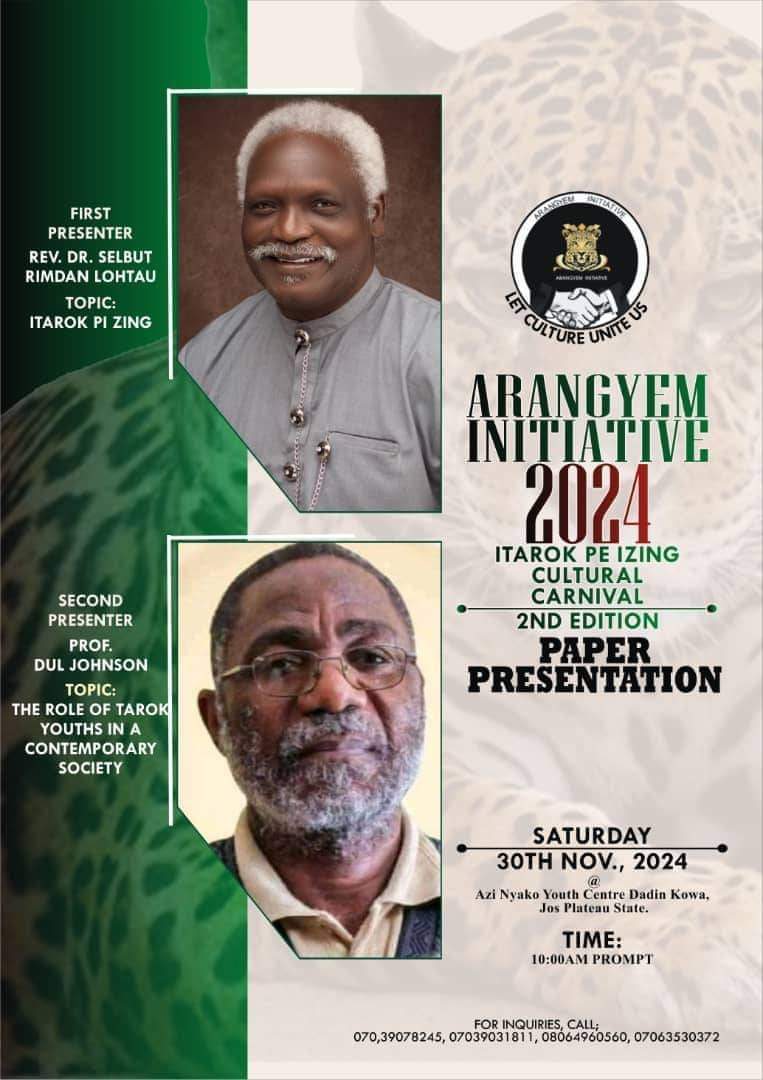
ITAROK PA IZING BY REV. DR. SELBUT LONGTAU
A PAPER PRESENTATION AT ITAROK PA IZING 2ND CARNIVAL HELD AT THE AZI NYAKO YOUTH CENTRE, JOS, 30TH NOVEMBER, 2024
… read more
TarokTv News: The Return of "Gathering of Bookworms" - A Literary Revival in Langtang North/South
TarokTv is thrilled to announce the upcoming edition of the Gathering of Bookworms, a celebrated event aimed at uniting the…
read moreLatest Albums
Recent videos
Copyright © 2020 - TarokTv designed by Taroktv Media.

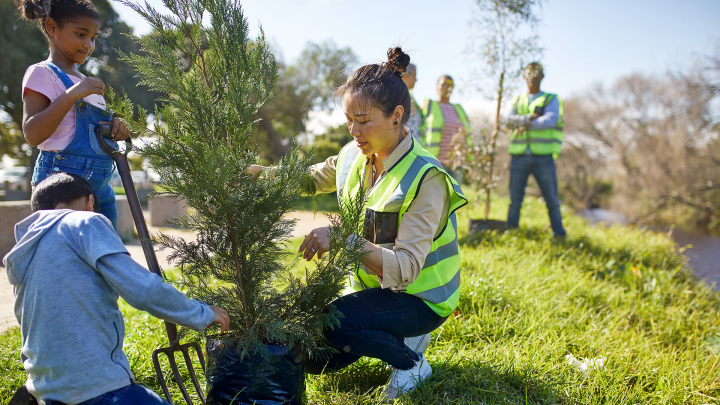
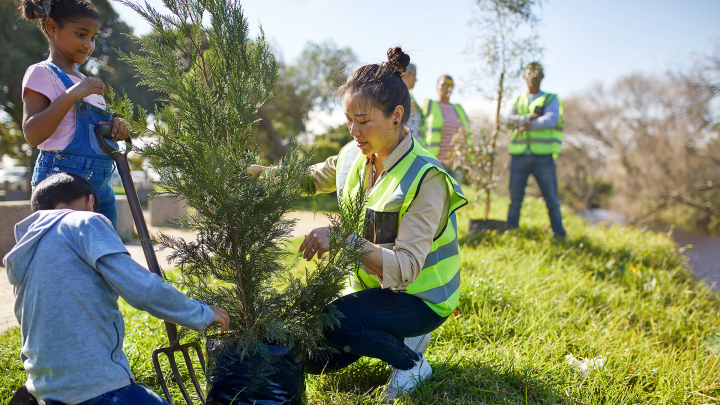


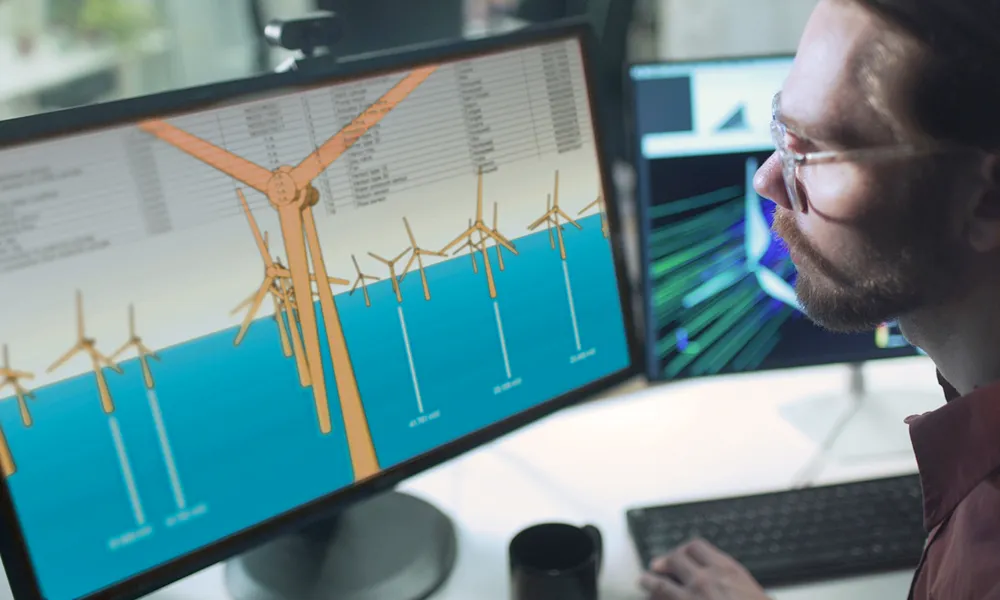


leave a comment
0 comment